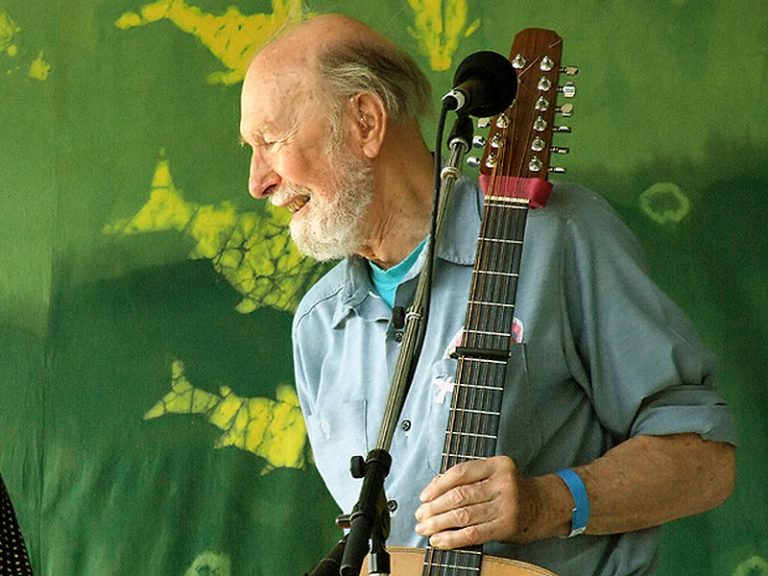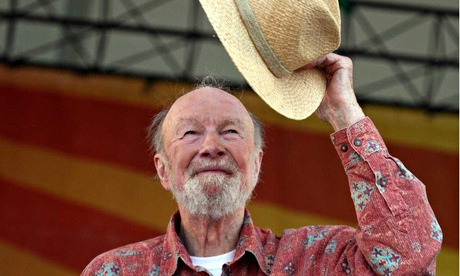
But the association dogged him for years. Seeger said he left the Communist Party around 1950 and later renounced it. His musical career was always braided tightly with his political activism, in which he advocated for causes ranging from civil rights to the cleanup of his beloved Hudson River.

He later said his only contribution to the anthem of the civil rights movement was changing the second word from "will" to "shall," which he said "opens up the mouth better." Seeger also was credited with popularizing "We Shall Overcome," which he printed in his publication "People's Song" in 1948. The group - Seeger, Lee Hays, Ronnie Gilbert and Fred Hellerman - churned out hit recordings of "Goodnight Irene," "Tzena, Tzena" and "On Top of Old Smoky." With The Weavers, a quartet organized in 1948, Seeger helped set the stage for a national folk revival. But with a simple gesture - extending his friendship - Seeger gave the protesters and even their opponents a moment of brotherhood the short-lived Occupy movement sorely needed.


In 2011, he walked nearly two miles with hundreds of protesters swirling around him holding signs and guitars, later admitting the attention embarrassed him.


 0 kommentar(er)
0 kommentar(er)
